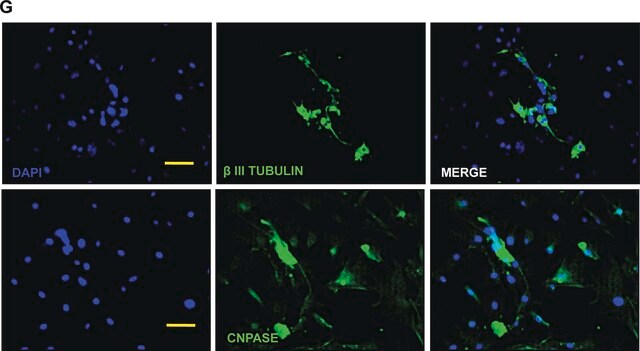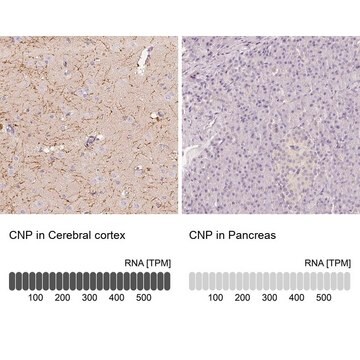C9743
Anti-CNPase antibody produced in rabbit
~1 mg/mL, affinity isolated antibody, buffered aqueous solution
Synonyme(s) :
Anti-2′,3′-Cyclic nucleotide 3′-phosphodiesterase, Anti-CNP1
About This Item
Produits recommandés
Source biologique
rabbit
Niveau de qualité
Conjugué
unconjugated
Forme d'anticorps
affinity isolated antibody
Type de produit anticorps
primary antibodies
Clone
polyclonal
Forme
buffered aqueous solution
Poids mol.
antigen 46-48 kDa
Espèces réactives
human, mouse, rat
Concentration
~1 mg/mL
Technique(s)
flow cytometry: 1:200-1:500
immunohistochemistry: 1:100-1:200
western blot: 1:500-1:1,000
Numéro d'accès UniProt
Conditions d'expédition
dry ice
Température de stockage
−20°C
Modification post-traductionnelle de la cible
unmodified
Informations sur le gène
human ... CNP(1267)
mouse ... Cnp(12799)
rat ... Cnp(25275)
Catégories apparentées
Immunogène
Application
Western Blotting (1 paper)
Actions biochimiques/physiologiques
Forme physique
Clause de non-responsabilité
Not finding the right product?
Try our Outil de sélection de produits.
Produit(s) apparenté(s)
Code de la classe de stockage
10 - Combustible liquids
Point d'éclair (°F)
Not applicable
Point d'éclair (°C)
Not applicable
Équipement de protection individuelle
Eyeshields, Gloves, multi-purpose combination respirator cartridge (US)
Certificats d'analyse (COA)
Recherchez un Certificats d'analyse (COA) en saisissant le numéro de lot du produit. Les numéros de lot figurent sur l'étiquette du produit après les mots "Lot" ou "Batch".
Déjà en possession de ce produit ?
Retrouvez la documentation relative aux produits que vous avez récemment achetés dans la Bibliothèque de documents.
Notre équipe de scientifiques dispose d'une expérience dans tous les secteurs de la recherche, notamment en sciences de la vie, science des matériaux, synthèse chimique, chromatographie, analyse et dans de nombreux autres domaines..
Contacter notre Service technique

![4,4,5,5-Tetramethyl-2-[3-(methylsulfonyl)phenyl]-1,3,2-dioxaborolane](/deepweb/assets/sigmaaldrich/product/structures/148/398/16ca11d3-b9b8-499f-93e2-c70a9a43799a/640/16ca11d3-b9b8-499f-93e2-c70a9a43799a.png)






